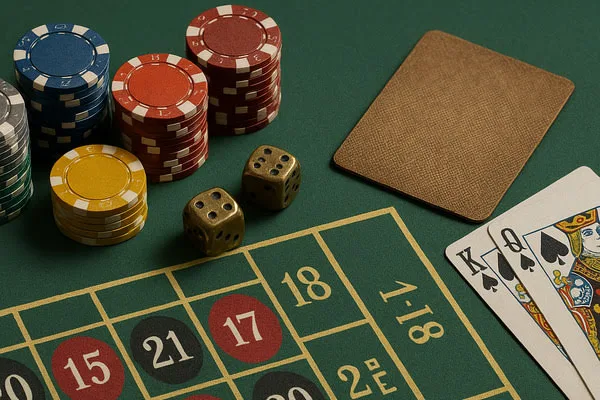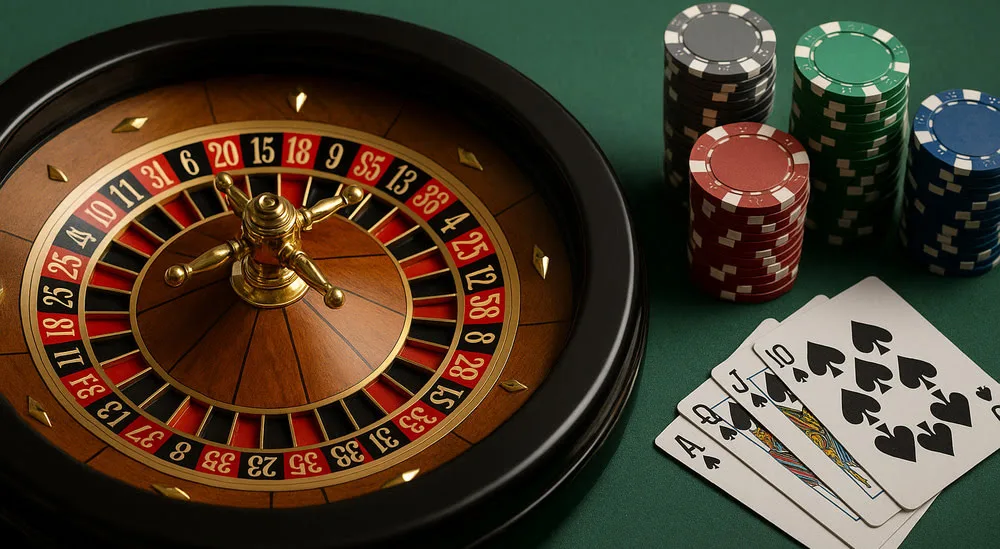
What Roulette Strategies Actually Work and Deliver Real Wins
Roulette is often seen as a game of pure chance, yet many players, especially those familiar with strategic disciplines like poker, wonder if calculated approaches can offer a real edge. Unique Casino provides access to a wide range of roulette tables, including European and live dealer formats, which encourages strategic thinking and experimentation. While the roulette wheel spins independently each time, various systems claim to improve a player’s control and longevity in the game. But which ones truly deliver results?
Mathematical Nature of Roulette: Is It Possible to Beat the House?
At its core, roulette is a negative expectation game. The house edge exists because of the presence of the zero (and double zero in American roulette), which tips the odds slightly in favour of the casino. European roulette has a house edge of 2.7%, while American roulette’s edge is 5.26%, purely due to the additional zero. This margin means that over time, the casino will statistically come out ahead.
However, this doesn’t imply that winning is impossible. Rather, it underscores that consistent profit is statistically unlikely without deviation from standard rules — something not typically allowed in regulated casinos. Despite this, understanding the probabilities behind each bet can help players make more informed decisions. Bets like red/black or odd/even offer near 50% odds, while straight-up bets pay more but hit less often.
For players with a poker background, the concept of expected value (EV) is familiar. In roulette, every bet has a negative EV. Still, bankroll management and bet selection can influence how long one stays in the game and the variance experienced. The goal isn’t to beat the house indefinitely but to play smart and minimise losses while capitalising on short-term variance.
Betting Strategies: From Theory to Table
Several betting systems have gained popularity among roulette players. The Martingale strategy is the most known: it involves doubling the bet after every loss, aiming to recover losses with a single win. While theoretically effective, it requires an unlimited bankroll and no table limits — conditions that rarely exist.
The Reverse Martingale, or Paroli system, takes the opposite approach. Players double their bets after each win, aiming to capitalise on winning streaks. It’s less risky but also doesn’t guarantee recovery after losses. Similarly, the D’Alembert system increases bets more gradually and appeals to conservative players who wish to avoid steep escalations.
Then there’s the Fibonacci system, where bet progression follows the famous numerical sequence. It offers a more measured approach compared to Martingale, though it shares similar risks over extended play. These strategies can influence session dynamics but none eliminate the house edge — they manage exposure, not probabilities.
Testing Popular Strategies: What Holds Up Over Time?
Real-world tests and simulations reveal a stark truth: while some strategies offer short-term success, none provide a sustainable advantage over thousands of spins. The Martingale, for example, can deliver small consistent wins — until a long losing streak wipes out the bankroll or hits a table limit.
Paroli shows promise for players who walk away after a few wins. However, pushing luck too far often results in giving back gains. Fibonacci and D’Alembert offer smoother progressions and may prolong gameplay, but their long-term return mirrors the house edge.
Online simulations of 10,000 spins per strategy confirm this. Martingale resulted in eventual bust in 94% of runs without infinite capital. Fibonacci showed slightly better stability but failed to overcome the negative EV. The best outcomes occurred when players implemented clear exit strategies and stuck to them.
Ultimately, success came down not to the system itself but the discipline of the player. The most effective strategy was not a mathematical formula but a personal rulebook: limits, goals, and strict adherence to them. For poker players used to managing variance, this mindset shift can make roulette more sustainable and enjoyable.

Which Strategies Work in Online Roulette?
Online roulette offers both benefits and challenges. Automated wheels remove human error, but fast spin rates increase risk exposure. Strategies like flat betting — placing the same amount every spin — can help maintain control in rapid sessions.
Combining flat betting with short-term progressions (e.g. Paroli) during winning streaks can improve perceived value. More importantly, setting strict session goals — both win and loss limits — can protect bankroll and prevent emotional decision-making.
Live dealer roulette brings a slower pace, which suits more complex strategies. However, chasing patterns or relying on dealer biases is largely ineffective with properly regulated platforms. The only consistent “advantage” lies in disciplined execution of a chosen system, not the system itself.
Strategies as Control Tools, Not Profit Engines
Experienced poker players understand that variance is a constant companion. In roulette, strategies aren’t tools to generate profits — they’re methods to manage behaviour, control risk, and optimise entertainment value.
Using systems like Fibonacci or D’Alembert can introduce structure and reduce emotional volatility. However, seeing them as profit engines creates false expectations. The role of strategy is not to win consistently, but to ensure responsible play and preserve bankroll integrity.
Viewed through this lens, roulette becomes a controlled activity rather than a high-risk gamble. By understanding what strategies can and cannot do, players can enjoy the game on their terms — much like a poker hand where the real edge lies in decision-making, not luck.



